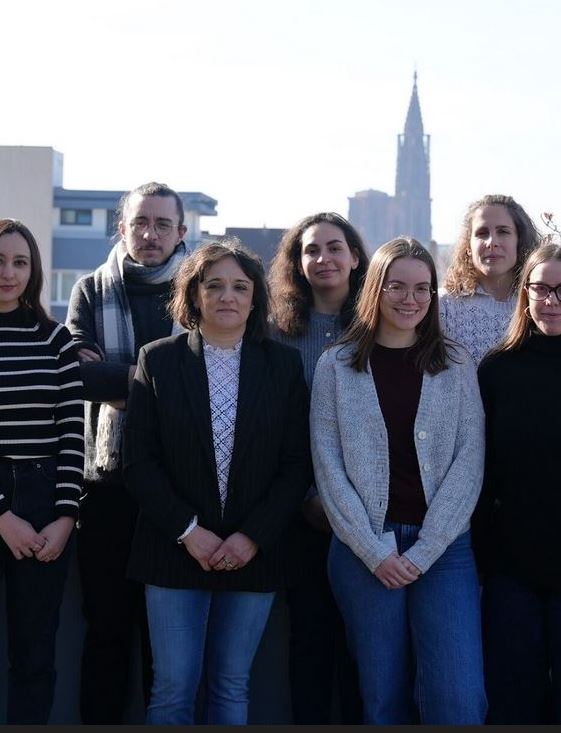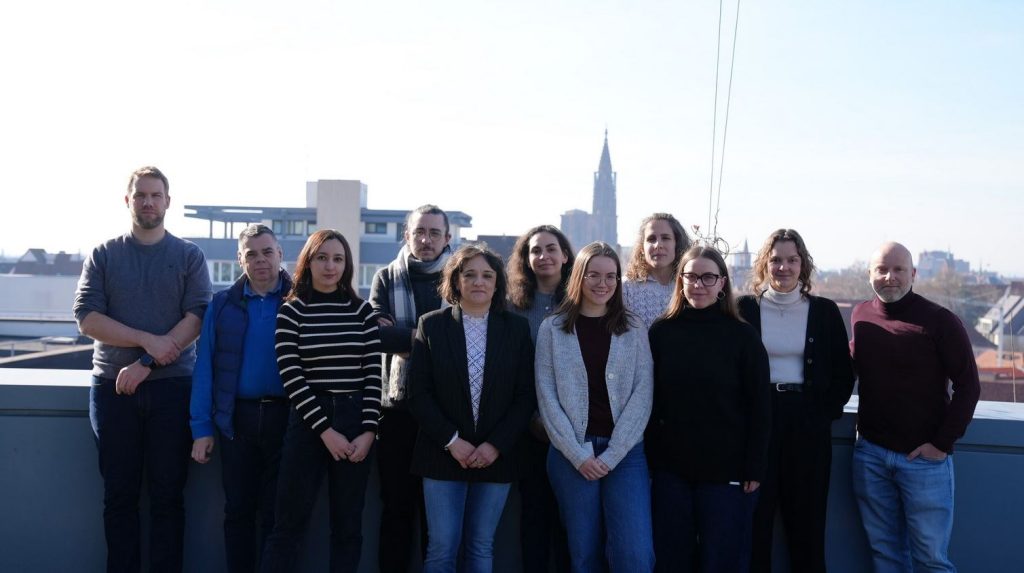

Superbranche Raises €13M to Accelerate Growth
28 April 2025
Superbranche, a pioneering startup in the development and manufacturing of superparamagnetic nanoparticles, based in Strasbourg and supported by Quest for health, recently announced a €13M fundraising round.
Delphine Felder-Flesch, CEO of Superbranche, shares insights into the behind-the-scenes of this fundraising process and the challenges encountered along the way.
Can you tell us about the origins of Superbranche?
Superbranche is a spin-off of the CNRS, specifically from IPCMS (Institute of Physics and Chemistry of Materials of Strasbourg). I was a Research Director at CNRS, and my work initially focused on the self-assembly of matter, particularly liquid crystals and dendrimers. The idea of applying this research to healthcare emerged during a conference, where a biologist suggested we explore the potential of our dendronized nanoparticles as MRI contrast agents.
The project quickly gained momentum, sparked interest among clinicians at Hospices Civils de Lyon, and led to multiple patent filings. In 2019, I decided to take a full-time leave from CNRS to dedicate myself entirely to the development of Superbranche.
Superbranche just raised €13M. Can you walk us through the journey and main challenges?
The seed phase was a crucial and difficult step in securing funding. To convince early investors, we had to quickly make market positioning decisions, provide technical proof of concept, solidify our intellectual property, and attract talented people to join us.
Our deeptech and versatile technology, which requires substantial capital and has potential across several markets, needed significant structuring efforts.
Part of this work was accelerated thanks to winning the i-Lab competition’s Grand Prize. This recognition from the French Ministry of Higher Education and Bpifrance increased our credibility and visibility, helping us to convince Alsace Business Angels (ABA) and investors from WiClub Santé, a unique investment vehicle in Europe launched by WiSEED and Quest for health. These funds allowed us to leverage non-dilutive public funding from Bpifrance and the Grand Est Region—vital at this stage of development.
With support from these early investors, we raised €1.6 million, which enabled us to scale up the R&D-grade production of our dendronized nanoparticles and conduct our first tests on pancreatic cancer in collaboration with a major group. These results reinforced the credibility of our technology and demonstrated our ability to deliver on time for a major client—key factors for our next steps.
Then came the intense Series A journey. Superbranche is both an industrial and biotech startup whose innovation lies in the nanoparticle production process. From the outset, we knew we would need to build a production facility. However, it is uncommon for healthtech startups to include an industrial strategy so early—an element often overlooked by most healthcare investment funds.
The turning point in this funding round came when Bpifrance, through its SPI (Sociétés de Projets Industriels) fund, showed interest in our industrial strategy. However, SPI had never invested in a healthcare project before. Their due diligence process, though highly constructive, lasted a year and helped us refine our development roadmap. It also played a key role in convincing a family office to provide the necessary matching funds.
At the same time, we launched a high-intensity outreach campaign: 250 funds contacted, 80 meetings, 15 NDAs signed, and a data room shared with five or six investors. In January 2024, SPI requested the involvement of a lead investor with healthcare expertise. Capital Grand Est stepped in, and their audit process lasted nine months. Our main challenge was to demonstrate product autonomy and convince investors of our potential in oncology applications.
What were the toughest moments during the fundraising?
The biggest challenge was time and cash flow management. Technically, we had secured €10M by the end of 2023, but had to reorganize to bring in a specialized fund in January 2024. This led us to seek bridge financing under tight conditions.
The discussions started in July 2022. I had planned for an 18-month fundraising process, and we finally closed the round on December 16, 2024. Investors were impressed by our resilience and ability to deliver answers and documentation on time—but honestly, had I known the scope of this marathon, I might have thought twice before starting it.
What advice would you give to a startup looking to raise funds?
Plan ahead: Fundraising always takes longer than expected. Start early and consider interim funding solutions (bridges, grants…).
Stay true to your vision: Investors may have diverging expectations. Listen, but don’t lose your project’s DNA.
Keep R&D a priority: To focus on the fundraising, I delegated a large part of the R&D to my CTO and team to keep momentum. It’s the core of our value and what sets us apart.
Build the right support network: Strong technical and financial partners, a proactive and insightful board, expert advisors, and an aligned team are all essential.
Persevere: There will be moments of doubt. Staying the course and holding onto your passion makes the difference.
What’s next for Superbranche?
Our priority is to finalize the construction of our production facility and accelerate our preclinical trials. This funding gives us the means to do so—but the journey is just beginning!
